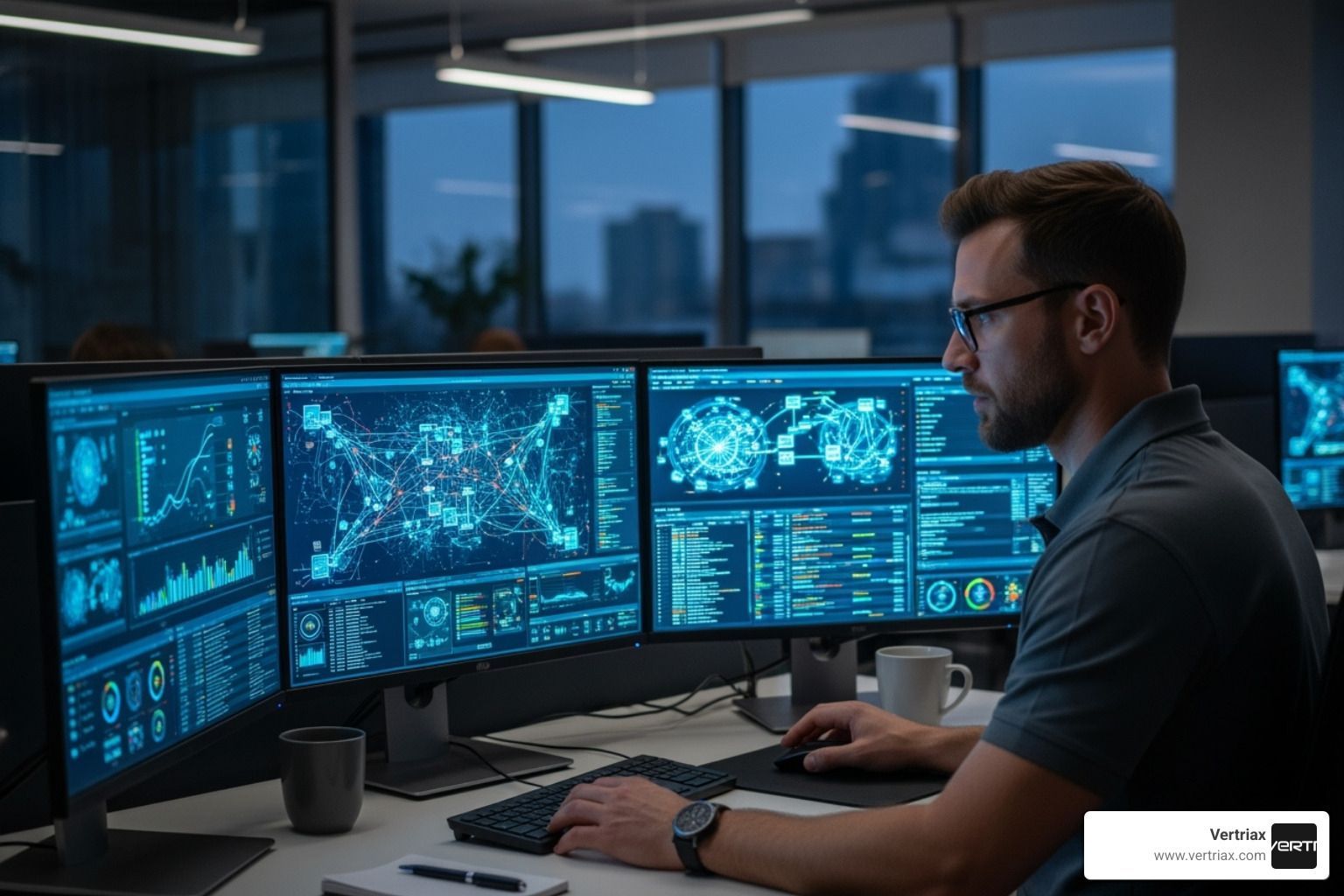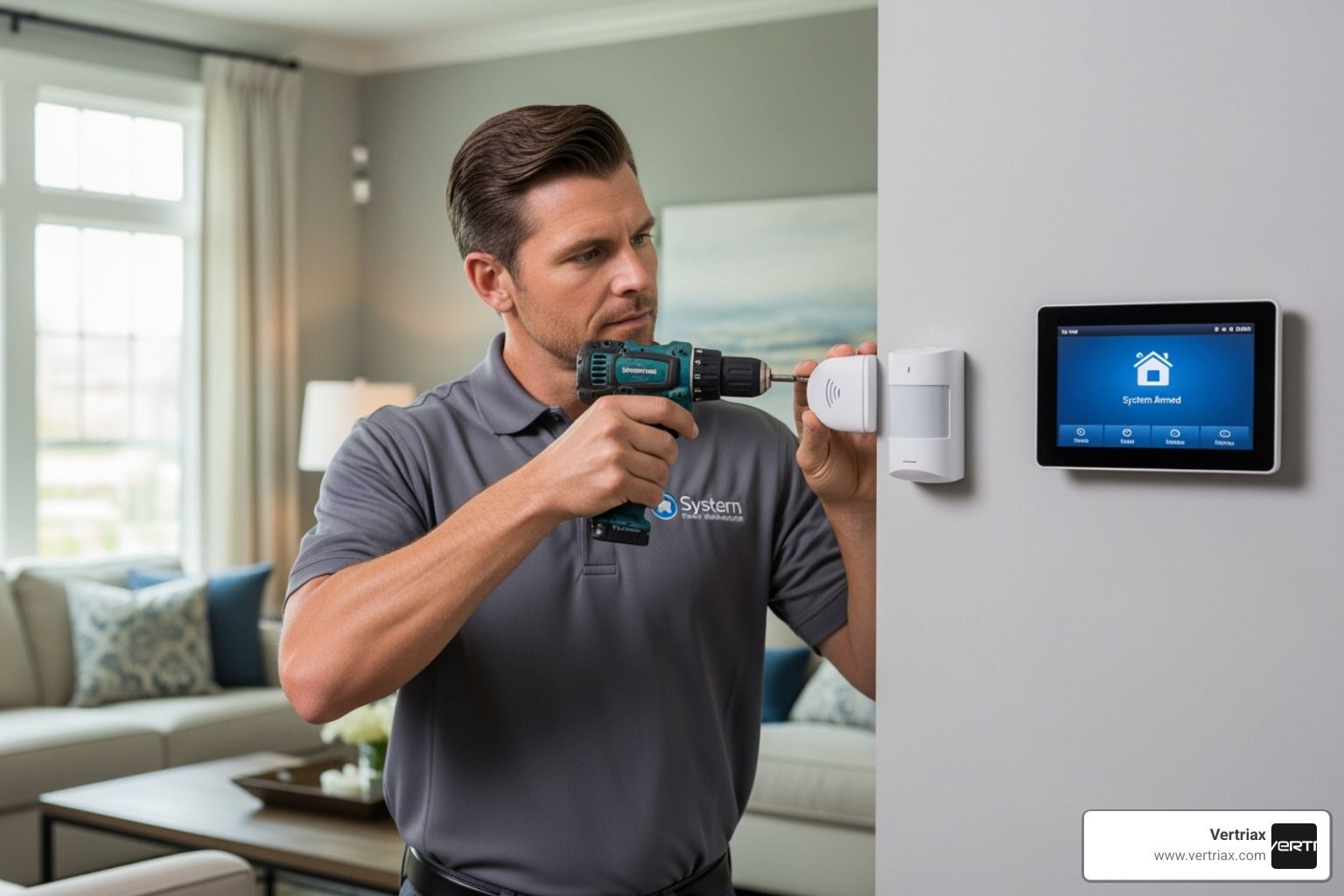The Art of Security Personnel Management – Keeping Chaos at Bay
Why Security Personnel Management is the Foundation of Organizational Safety

Security personnel management is the systematic approach to recruiting, training, deploying, and overseeing security staff to protect an organization's people, assets, and operations. With workplace violence incidents costing businesses $130 billion annually and data breaches averaging $4.24 million per incident, effective programs are no longer optional9theyre an operational imperative. (See related guidance from the Occupational Safety and Health Administration for current federal insights.)
Core Components of Security Personnel Management:
- Recruitment & Selection – strategic hiring with vetting and skills assessment
- Training & Development – certification plus ongoing education for evolving threats
- Operations Management – clear protocols, communication systems, and performance monitoring
- Technology Integration – modern platforms for tracking, reporting, and real-time coordination
- Performance Assessment – regular reviews and continuous improvement
Companies with well-trained security personnel experience 22% fewer safety incidents, underscoring that proper management directly impacts both safety and financial performance.
The challenge isn’t just having security guards—it’s having the right people, properly trained, effectively managed, and equipped to meet today’s threat landscape. Poor programs lead to high turnover, slow response, and preventable breaches.
The Core Pillars of Modern Security Personnel Management
Modern security personnel management rests on four fundamental pillars that work together to create a comprehensive protection framework. At Vertriax, we've seen organizations transform their security posture by focusing on these core elements with strategic precision.
The first pillar involves establishing clear roles and documented responsibilities. Without defined job descriptions and standard operating procedures (SOPs), security teams operate in chaos. We recommend creating detailed post orders that specify exactly what guards should do, when they should do it, and how to escalate issues through the chain of command.
Policy development forms the second pillar, ensuring legal compliance while maintaining operational effectiveness. This includes emergency response protocols, access control procedures, and incident reporting frameworks. These policies must be living documents that evolve with changing threats and regulatory requirements.
The third pillar focuses on communication protocols and information flow. Security teams must maintain constant coordination through multiple channels - two-way radios, secure mobile applications, and structured briefing systems. Clear communication prevents gaps in coverage and ensures rapid response to incidents.
Technology integration represents the fourth pillar, leveraging modern security guard management systems for real-time tracking, automated reporting, and data-driven decision making. Cloud-based platforms enable supervisors to monitor guard locations, verify patrol completion, and generate comprehensive reports for clients.
For organizations seeking expert guidance in establishing these pillars, our Oversight and Management services provide comprehensive support in building robust security frameworks.
Why Effective Management is Crucial for Safety and Assets
Effective security personnel management serves as the first line of defense against threats that could devastate an organization. When properly managed, security teams protect people by preventing workplace violence, controlling access to sensitive areas, and responding swiftly to medical emergencies or safety incidents.
Asset protection extends beyond physical property to include intellectual property, data systems, and brand reputation. A well-managed security team monitors surveillance systems, conducts regular patrols, and maintains detailed logs that provide accountability and evidence when incidents occur.
The financial impact of poor security management is staggering. Beyond the $130 billion annual cost of workplace violence, organizations face additional expenses from theft, vandalism, and business interruption. Effective security personnel management prevents these losses while maintaining business continuity during crisis situations.
Security teams also serve as the face of the organization, often providing the first impression for visitors, clients, and employees. Professional, well-trained security personnel improve corporate reputation and create a sense of safety that improves employee morale and productivity.
Incident response readiness becomes critical during emergencies. Properly managed security teams can coordinate evacuations, provide first aid, secure crime scenes, and interface with law enforcement and emergency services. This preparedness can mean the difference between minor incidents and major disasters.
Fostering a Positive and Supportive Work Environment
Creating a positive work environment for security personnel directly impacts retention, performance, and overall security effectiveness. High turnover rates plague the security industry, often resulting from poor management practices that treat guards as expendable rather than valuable team members.
Recognition programs and reward systems boost morale while encouraging excellence. We recommend implementing employee-of-the-month programs, performance bonuses, and public acknowledgment of exceptional service. These initiatives cost relatively little but generate significant returns in employee satisfaction and retention.
Career advancement opportunities retain talented personnel who might otherwise seek opportunities elsewhere. Establishing clear promotion pathways from entry-level positions to supervisory roles gives guards something to work toward while building institutional knowledge within the organization.
Work-life balance becomes crucial in security operations that often require 24/7 coverage. Predictable scheduling, adequate rest periods between shifts, and flexibility for personal emergencies help prevent burnout and maintain alertness during critical periods.
Mental health support addresses the unique stresses of security work. Guards regularly deal with confrontational situations, witness traumatic events, and work in high-stress environments. Providing access to counseling services and stress management resources helps maintain psychological well-being.
Teamwork and collaboration flourish when security personnel feel valued and supported. Regular team meetings, training exercises, and social events build camaraderie and improve communication. Strong teams respond more effectively to incidents and provide better overall security coverage.
Building Your First Line of Defense: Recruitment and Training
A strong security team starts with finding the right people and giving them the skills they need. Proper hiring and training slash turnover and create professionals who grow with your organization.
The Strategic Hiring Process in security personnel management
Generic ads ("security guard needed") attract everyone and no one. Instead, outline daily duties, required skills, and growth paths. In interviews, use open-ended questions: “Walk me through how you’d handle an aggressive visitor.”
Essential traits:
- Integrity – they control keys, codes, and sensitive data.
- Communication – clear reports and professional interactions.
- Situational awareness – noticing when something feels off.
- Physical fitness – matching actual post demands.
Background checks—criminal history, references, employment verification—are non-negotiable. Vertriax’s Background Check Oversight streamlines this process.
Comprehensive Training for Evolving Threats
Initial onboarding covers assignment-specific basics, but ongoing education keeps skills sharp.
- Emergency response & evacuation drills
- De-escalation techniques for tense encounters
- Access control and visitor management
- First aid/CPR certification
- Cyber-physical threat awareness
Monthly refreshers and annual recertification ensure guards stay current without information overload. For deeper frameworks, see our Security Guard Management Guide.
Driving Operational Excellence in Day-to-Day Management
Operational excellence hinges on tight supervision, clear communication, and measurable performance.
Team coordination is critical when multiple guards respond to an incident. Practiced procedures and a defined chain of command eliminate confusion.
Information must flow in real time. Two-way radios, secure apps, and concise briefings ensure nobody operates blind.
Accountability toolsguard-tour systems, GPS tracking, and time-stamped reportsverify patrols and document incidents for later review.
Key performance metrics (KPIs) include patrol completion, response time, and client feedback. Quarterly reviews paired with monthly check-ins keep improvement continuous.
For high-profile events that demand flawless execution, our Event Security teams apply these same principles at scale.
Establishing Robust Communication and Reporting Protocols
- Primary: two-way radios with disciplined channel use
- Backup: secure mobile apps for reports and alerts
- Daily Activity Reports (DARs): concise log of routine observations
- Incident reports: date, time, location, actions, follow-up
- Evidence handling: photos, video, chain of custody
Our Security Operations frameworks simplify deployment while meeting legal requirements.
Performance Assessment and Continuous Improvement
Balanced scorecards blend hard numbers with qualitative feedback. Patrol data shows coverage; client surveys reveal service quality. Identify skill gaps, schedule targeted training, and pair new guards with seasoned mentors. The result: fewer incidents and higher morale.
Leveraging Technology and Data for Smarter Security
The leap from paper clipboards to cloud dashboards has redefined security personnel management.
| Traditional | Modern |
|---|---|
| Manual schedules | Automated, rules-based scheduling |
| Paper incident logs | Instant digital reporting |
| Reactive response | Predictive analytics & alerts |
| Minimal oversight | Real-time GPS tracking |
| Hard-to-measure performance | KPI dashboards |
Technology isn’t just "cool gadgets"—it multiplies efficiency, accountability, and transparency.
How Modern Systems Improve Operations
- Cloud platforms let supervisors manage multiple sites from a phone.
- GPS tracking verifies patrols and improves lone-worker safety.
- Geofences alert when guards enter/exit critical areas.
- Automated scheduling handles swaps and compliance.
- Visitor management integrates with access control.
For full integration, explore our Security Operations as a Service.
The Role of Data and Analytics
Historical incident data highlights patterns, enabling:
- Smarter guard deployment
- Predictive security measures
- Data-backed budget requests
Numbers replace guesswork, proving ROI and securing future investment.
Frequently Asked Questions about Security Personnel Management
What are the most common pitfalls?
- Inadequate training
- Poor communication channels
- Unclear responsibilities
- Skipped performance reviews
- Insufficient supervision
- Failure to adapt to new threats
Addressing these six items eliminates most preventable incidents.
How do you measure a security guard’s performance?
- Patrol completion (verified by guard-tour tech)
- Response times to alarms or calls
- Quality of reports
- Client feedback
- Adherence to post orders
A balanced scorecard combines these metrics for fair, objective reviews.
Why is ongoing training critical?
Threats evolve, regulations change, and skills fade without repetition. Continuous training keeps guards compliant, confident, and ready for modern risks.
Conclusion
Mastering security personnel management transforms how organizations protect what matters most. It's not just about having guards at your doors—it's about building a comprehensive system that turns security from a necessary expense into a strategic advantage.
The most successful organizations understand that security personnel management starts with getting the right people in place. This means thorough hiring processes, comprehensive training programs, and creating work environments where security professionals can thrive. When you invest in your people from day one, everything else falls into place more naturally.
But having great people is only the beginning. Operational excellence happens when you combine skilled personnel with clear communication systems, robust reporting protocols, and consistent performance management. These elements work together like pieces of a puzzle—each one strengthens the others.
Technology amplifies everything your security team does well. Modern guard management systems, real-time tracking, and data analytics don't replace human judgment—they make it more effective. The organizations seeing the biggest improvements are those that blend human expertise with smart technology integration.
The human element remains at the heart of exceptional security. No amount of technology can replace the value of well-trained, motivated security professionals who understand their role and feel supported in their work. Creating positive environments where guards want to stay and grow professionally pays dividends in reduced turnover and improved performance.
At Vertriax, we've seen how proper security personnel management creates ripple effects throughout organizations. Better-managed security teams respond faster to incidents, provide superior customer service, and adapt more quickly to emerging threats. The result is fewer security incidents, happier clients, and stronger organizational reputations.
The investment in comprehensive security personnel management pays for itself through reduced incidents, lower turnover costs, and improved operational efficiency. Organizations that master these fundamentals don't just keep problems at bay—they build security programs that actively contribute to business success.
For expert guidance on building and managing an elite security program that integrates all these elements seamlessly, explore our Security Design and Management services. Together, we can transform your security operations into a strategic advantage that protects what matters most while driving organizational excellence.




